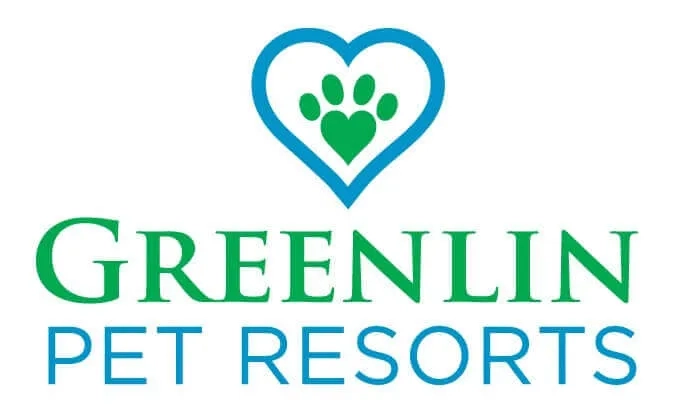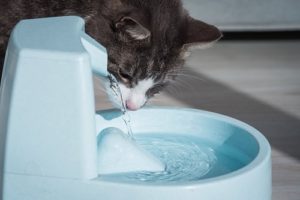The Importance of Keeping Your Animal Hydrated
When thinking of how to best take care of your pet, most pet owners put a lot of thought into which food will provide the best nutritional support for their furry friend. However, making sure your pet is well-hydrated is just as important as ensuring they are well-fed.
Water is the main component of the cells in human bodies, and it is the same for your pet. Our internal organs also need a certain amount of moisture to function properly. Consider that plasma makes up over half of our blood, and over 90% of plasma is water. If your pet is not receiving an adequate amount of water throughout the day, it may not be able to function properly and can even become dehydrated, which can cause a host of medical issues, both now and into the future.
What Does Water Do for My Pet?
Like with human bodies, pet bodies depend on water for survival. Water works in many different ways in your pet’s body. For instance, as part of the bloodstream, it helps to carry nutrients to and from cells, which helps your pet digest their food and absorb the nutrients that help support bodily functions. Water also works to regulate your pet’s body temperature, improves their cognitive functions, cushions their brain and spinal cord, and helps lubricate their joints. You can see how water impacts every aspect of your pet’s body.
When humans don’t get enough water, we can feel groggy, lightheaded, or lethargic. The same can happen to our pets. When dehydration becomes serious, our body (as well as the bodies of our pets) draws from the store of water in our cells, which can cause electrolyte imbalances and even muscle dysfunction. In fact, if dehydration becomes serious enough, organ failure and even death can occur.
How Can I Tell if My Pet is Becoming Dehydrated?
Slight dehydration is common in pets, especially as they get older in age. Dehydration is more common in sick pets, cats, and short-faced, or brachycephalic, breeds. If you are monitoring your pet for dehydration, here are some of the common signs that your pet may display:
- Lethargic movements
- Fatigue
- Reluctance to eat
- Panting
- Dry nose or gums
- Sunken eyes
Another way you can check to see if your pet is dehydrated is to test the elasticity of their skin. To do this, all you need to do is gently pinch the skin between their shoulder blades. When you let go, if their skin flattens out quickly, they likely have had enough water. However, if the skin remains pinched or takes more than a few seconds to return to normal, your pet may need to drink some more water.
Yet another method is the “gum test.” With recently washed and dry hands, gently lift the upper or lower lip of your pet and touch their gums with your finger tip. If your finger comes away easily, that means the pet likely has adequate hydration. However, if your fingertip feels like it is slightly sticking to the gums, it can mean that your pet is low on fluids.
How Does Dehydration Occur in Pets?
Just like in human bodies, pets’ bodies take in water by eating and drinking, and they lose water from going to the bathroom, panting, and regular breathing. The issues begin to occur when your pet starts losing more water than they are taking in.
If your pet is not eating or drinking enough, dehydration can occur. Unfortunately, since one of the signs of dehydration is a reluctance to eat, even though your pet can regain some hydration from food, they likely won’t, which can make their dehydrated state become worse.
Overall, it is important to monitor your pet’s intake of food and water so that you can be aware of any issues.
Dehydration also commonly occurs in pets that exercise heavily or spend a lot of time in hot, humid weather. If your dog has suffered from heat stress or heat stroke, they likely have also battled severe dehydration, as the two often occur hand-in-hand.
If you have cats, it is important that you monitor them for signs of dehydration regularly, as they may be better at hiding symptoms. According to the Cornell College of Veterinary Medicine, cats need about 4 ounces of water for every 5 pounds of body weight a day. If you have concerns that your cat is not taking in an adequate amount of water, schedule an appointment with your veterinarian as soon as possible.
Ways to Keep Your Pets Hydrated
Dehydration can cause serious medical issues in your pets, so the best thing you can do for your pets is to actively work to prevent it from happening. It is important to monitor your pet’s water intake throughout the year, but you may want to make it a special point to pay more attention during the summer months. Here are some tips to help ensure that your pet doesn’t become dehydrated:
- Offer clean and fresh water every day
- Have water bowls placed in multiple places around your house and yard
- Consider investing in a drinking fountain for your pets
- Let cats drink from dripping faucets if they are interested
- Canned, wet pet food contains more water than dry pellets or kibble, so consider adding some to your pet’s regular diet
- Add water to dry or wet pet food and stir, increasing the hydration they get from eating alone
- Invest in collapsible water bowls for drinking water on-the-go
- If your pet seems reluctant to drink from one bowl type, try others until you find one they like
- If your pet isn’t drinking enough water, consider adding a small amount of liquid flavorings, such as the liquid from a tuna can, to encourage water consumption
Consider Greenlin Pet Resorts
If you are not able to be with your pets throughout the day or need extended care for them, consider contacting Greenlin Pet Resorts for your pet boarding needs. We offer a range of services, from doggy daycare to longer-term pet boarding for both dogs and cats. Especially during the summer months, when dehydration is more likely to occur, our staff at Greenlin Pet Resorts can monitor your pet’s water intake while allowing them both indoor and outdoor play options.
Contact us today to get in touch with one of our five conveniently placed resorts, located throughout central Pennsylvania. We have boarding packages that are specific to puppies, cats, and dogs to meet the needs of your particular pets.
No matter what package is right for your pet, you can ensure that they will receive individualized attention throughout their stay. We have over 15 years of experience caring for pets, and we would love to add your family to our list of satisfied customers. Call or visit a location near you so we can start planning a vacation for your furry friend today!

